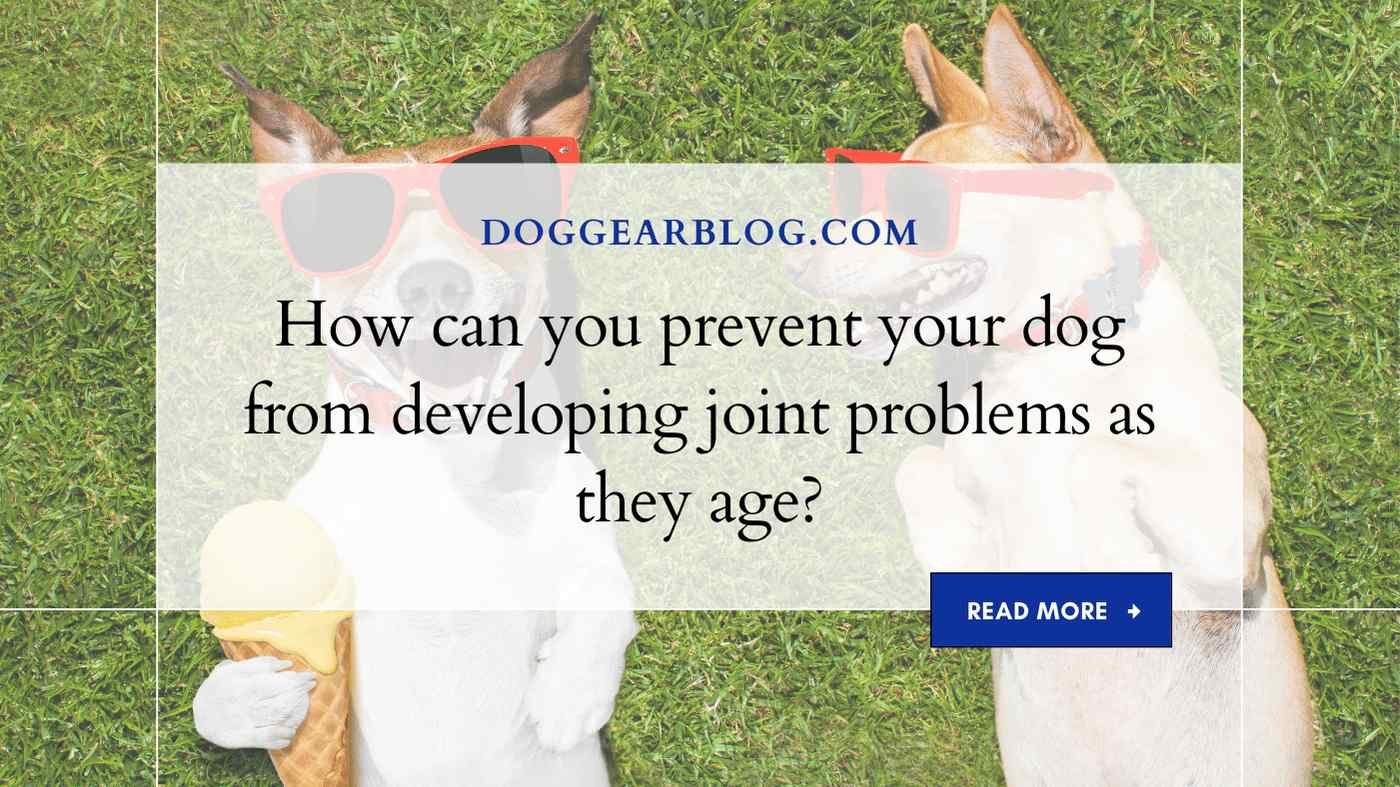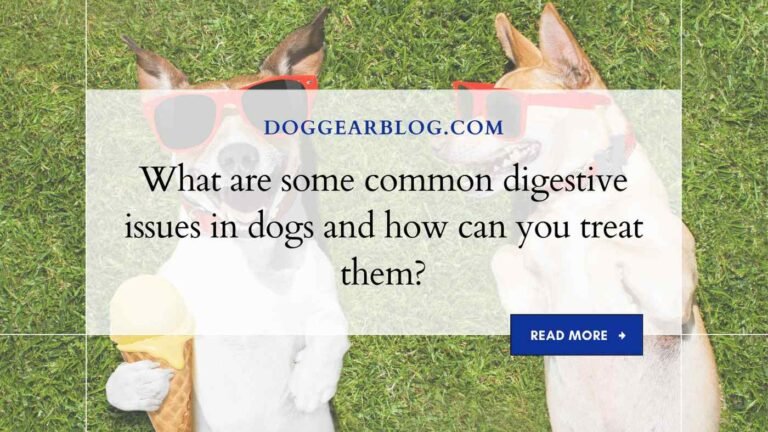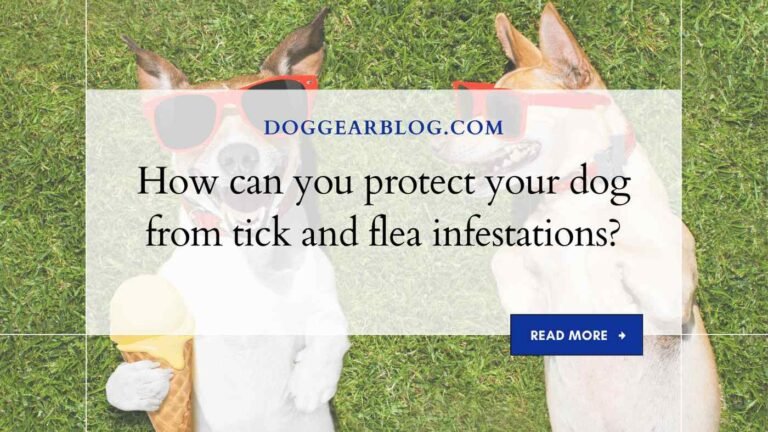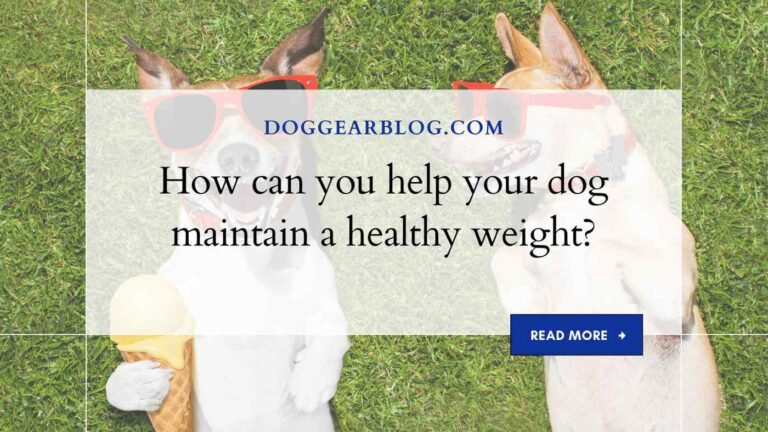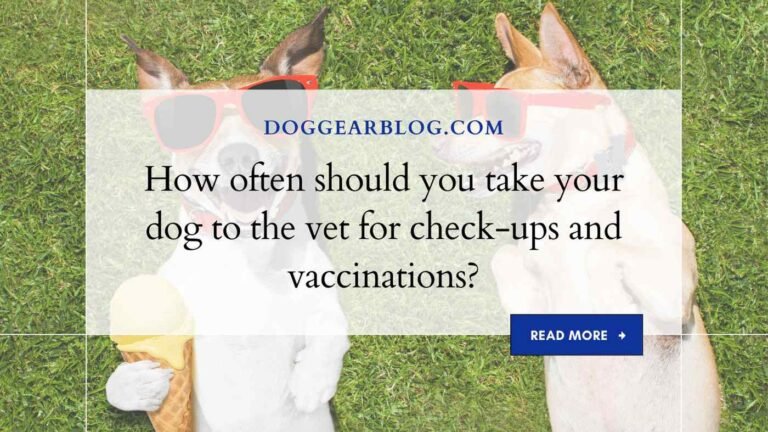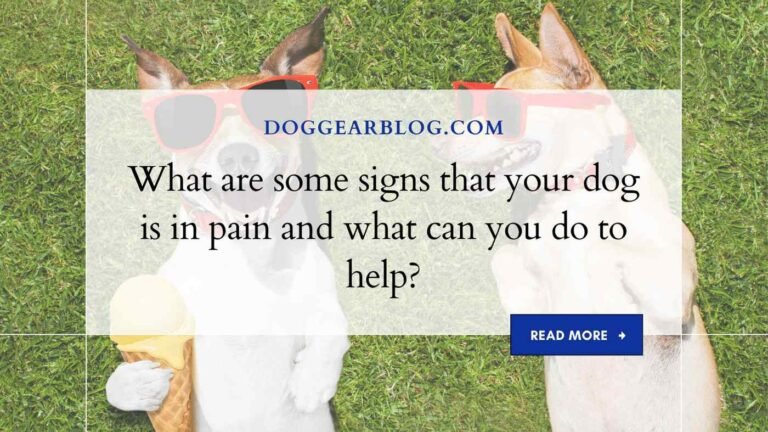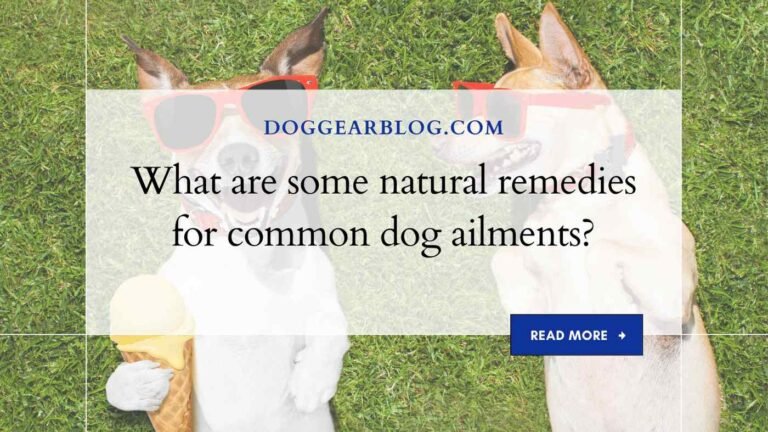How can you prevent your dog from developing joint problems as they age?
As pet owners, our furry friends are more than just animals; they’re family. And just like with any member of the family, we want to ensure their well-being throughout their entire lives. Unfortunately, as dogs age, joint problems can become a common issue. These issues can lower your dog’s mobility and ultimately have a negative impact on their quality of life.
However, there are preventative measures you can take to make sure your pup doesn’t suffer from these issues later in life. In this blog post, we’ll explore different ways that you can help prevent joint problems in your pooch so that they stay healthy and happy for years to come!
What is the connection between joints and age in dogs?
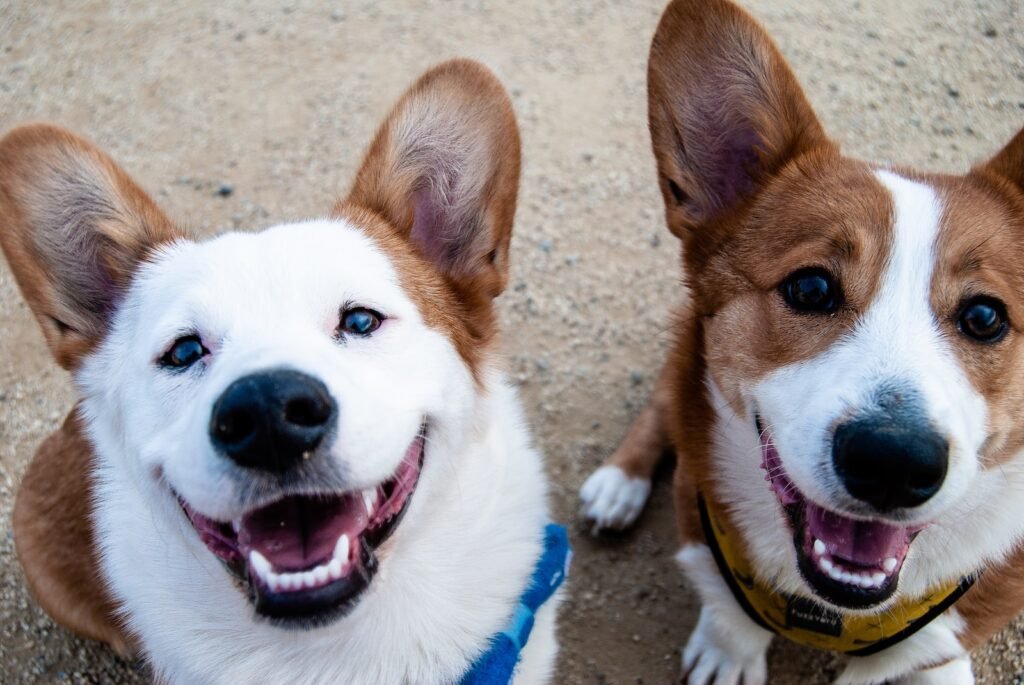
Joint problems in dogs can develop at any age, but are most common between the ages of six and twelve months. As your dog ages, their joints may start to wear down from the normal wear and tear of daily activities. The tissue that makes up a joint can also become weaker over time as arthritis sets in, leading to inflammation and pain.
There are a few things you can do to help prevent your dog from developing joint problems as they age. First, keep them active by regularly participating in training and playing sessions. This will help keep their muscles strong and their joints lubricated, preventing them from wearing down prematurely.
Second, make sure to feed them a diet that is high in content ofOsmega-3 fatty acids. Omega-3s help reduce inflammation and protect the skin around your dog’s joints against damage. Make sure they get regular veterinary checkups to monitor their health and check for signs of arthritis or other joint problems.
Causes of joint problems in dogs
Joint problems are a common issue in dogs as they age. They can be caused by a variety of factors, but there are some steps you can take to help ensure your dog remains healthy and comfortable throughout their life.
1) Keep your dog active. A lot of joint pain is due to a lack of activity, so make sure to keep them as active as possible. Activities that can be enjoyed together, such as running or playing fetch, can both help keep your dog happy and healthy.
2) Be sure to feed them a good diet. Joint problems often arise when dogs eat an unhealthy diet full of processed foods and grocery store meats that are high in fat. Make sure to give them a balanced diet that includes plenty of fresh fruits and vegetables to provide their body with the vitamins and minerals it needs.
3) Don’t over-vaccinate your dog. Vaccines are important for preventing disease, but they also affect the immune system in other ways. Over-vaccination can cause your dog’s joints to become inflamed, which can lead to joint pain or even arthritis down the road。
4) Adopt/ fostering a rescue pet is beneficial for both humans and animals! Rescues have typically been through less intensive breeding procedures than regular pet breeders (meaning more health variants), meaning that they may have fewer health issues overall but certainly more genetic joint issues relative to pets bred through conventional practices (meaning more consistent genes). Fostering allows for a closer look at the individual’s family medical history, which may give you a heads up on any other joint-related medical issues the pet may have.
5) Consult with a veterinarian. Veterinary professionals can provide additional information and treatment options for your pet’s specific joint problem.
Prevention methods for dog joints
Prevention methods for dog joints typically focus on reducing the amount of activity your dog engages in, as well as providing them with adequate nutrition and hydration. In addition, certain medications may help to reduce the risk of developing joint problems in dogs.
One of the most important things you can do to prevent your dog from developing joint issues is to keep them active and healthy by providing plenty of regular exercise. A regular routine of walking, running or playing fetch will help keep their joints lubricated and healthy. If possible, try to avoid subjecting them to excessive wear and tear on their joints – making sure they don’t over-reach or twist their bodies in ways that put stress on their joints.
In addition to exercise, feeding your dog a nutritious diet is crucial for keeping their joints lubricated and healthy. To provide the best nutrition for your dog’s joints, make sure they’re getting enough vitamins A, C and E as well as minerals such as calcium and magnesium. And be sure to avoid foods containing processed meats, grains or Froot Loops – which can lead to softening and degeneration of the cartilage in a dog’s joints.
Be sure to keep your dog hydrated by providing them with plenty of clean water at all times. Not only will this help keep them hydrated, but it will also help prevent dehydration from leading to joint problems in dogs.
What are the main causes of joint problems in dogs?

There are a couple of factors that can contribute to your dog developing joint problems as they age. There is no one single cause, and various factors can work together to cause issues. However, some of the main causes of joint problems in dogs include:
- Genetics: Some dog breeders believe that certain breeds are more prone to developing arthritis than others, and this may be true for some breeds but not for all. There isn’t any definitive answer as to why some dogs develop joint problems earlier than others, but genetics certainly plays a role.
- Age: As your dog ages, their joints start to wear down. This process is gradual and sometimes doesn’t become noticeable until your dog is in their senior years. As damage accumulates over time, it can lead to inflammation and even pain in the joints.
- Environmental toxins: Exposure to environmental toxins can also contribute towards joint issues in dogs. These toxins can damage the lining of the joints and cause them to malfunction. Many people are exposed to hazardous chemicals every day without even realizing it, and this includes many pet owners. Make sure you keep your dog safe by following proper safety guidelines when cleaning up around the home!
- Medical diseases: Joint problems in dogs can also be caused by various medical conditions such as arthritis or hip dysplasia. If not treated properly, these diseases can lead to significant pain and disability in your pet’s lifetime. If you notice any signs of illness or injury accompanying your dog’s joint problems, make sure to get them checked out by a veterinarian.
What can you do to prevent your dog from developing joint problems?
There are a few things you can do to help keep your dog healthy and minimize the chances of developing joint problems. This Starts with providing them with a good diet, checking their health regularly, and providing plenty of exercise. In addition, regular supplementation with joint supplements can also help keep your dog’s joints strong and healthy.
Below are some other tips to help prevent your dog from developing joint problems:
1] Feed a good diet
A good diet is essential for keeping your dog healthy overall and preventing them from developing joint problems as they age. Make sure their food is high in animal-based proteins, fiber, vitamins, minerals, and fatty acids. Avoid feeding them processed foods which can contain lots of sugar and unhealthy additives. And don’t forget about water – make sure they’re getting enough fluids every day. All of these things will help support their overall health and lock in the nutrients that will keep their joints healthy!
2] Check their health regularly
It’s important to regularly check your dog’s health to make sure there aren’t any issues that could be causing them to develop joint problems. This includes checking their weight, examining their skin for redness or swelling, and doing a physical exam to look for any sign of arthritis or other pain in the joints. If you notice anything unusual or concern yourself about your dog’s general health, please call our veterinarian immediately!
3] Supplement their diet with joint supplements
If you ‘re unable to provide your dog with a good diet or regular health checks, supplementing their diet with joint supplements can help support their overall health and keep their joints strong. There are many different brands and types of joint supplements available on the market, so make sure to research which ones are best for your dog. Some products can be taken daily while others may only need to be taken intermittently. Discuss with your veterinarian what’s best for your dog based on their individual needs.
4] Give them plenty of exercise
Physical exercise is another important factor in keeping dogs healthy and preventing them from developing joint problems. Make sure they’re getting at least 30 minutes of moderate-quality exercise each day – this includes playing fetch, going on walks, jumping up and down, running around, etc. This will not only help keep them physically active, but it will also help release natural enzymes that can help lessen the chance of developing joint issues in the future.
What are the benefits of a healthy diet for your dog?
A healthy diet is one of the best ways to prevent your dog from developing joint problems as they age. A good diet will provide them with the nutrients they need to maintain their body’s ability to function properly, and help keep their joints healthy.
Some of the benefits of a healthy diet for your dog include:
Your dog will have better mobility.
Your dog will have fewer health problems.
Your dog will require less medication.
Conclusion
Joint problems are common in dogs as they age, and there are a few things you can do to help prevent them. Increase your dog’s activity level by walking them more often and giving them plenty of mental stimulation. Feed them a high-quality diet that includes proper ratios of protein, fiber and Phosphorus to keep their joints healthy.
And make sure to get your dog vaccinated against preventable diseases, like pneumonia, which can lead to joint inflammation.
